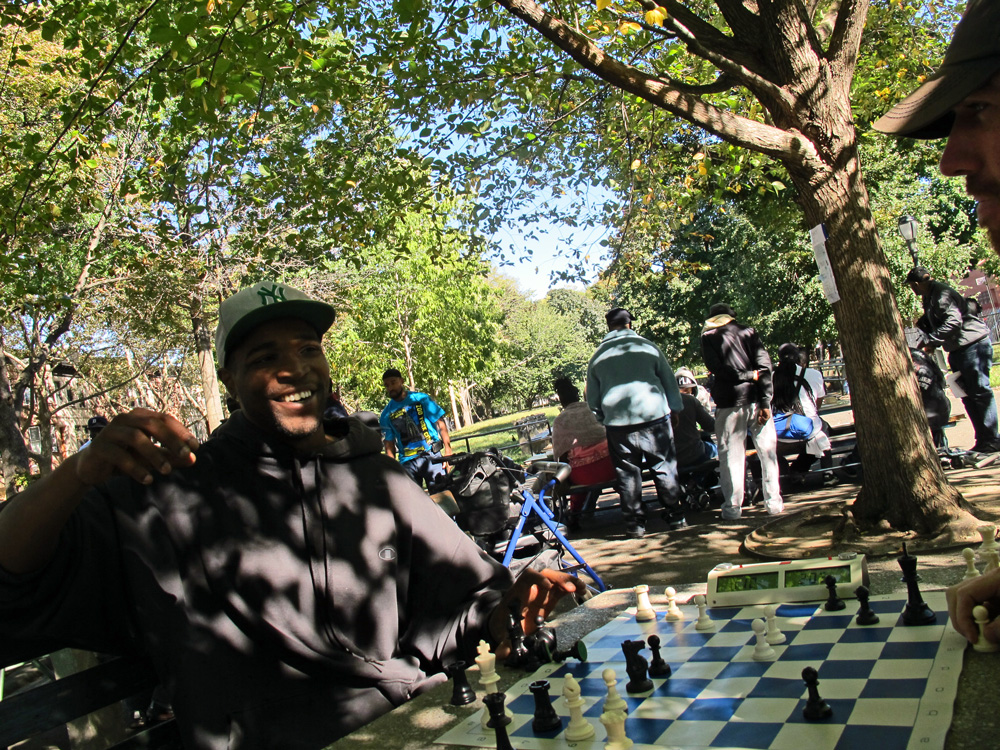Each weekend in parks across the city, New Yorkers gather to play informal games of chess. More than any other game, good weather draws people into the public square to do battle on the checkered board. Fulton Park, in the Southeast section of Bedford-Stuyvesant, Brooklyn, is no exception. While small in size, the park attracts more than its share of local talent. Almost exclusively men, the players sit, smoke, and talk chess. The satisfying sound of clicking chess timers emanates above a boom box playing a scratchy tape of the Isley Brothers.
With both ranked players and amateurs the range of skill is wide at Fulton Park. Players employ a variety of strategies in openings, mid-, and endgames. Some start big and create bloody mayhem in the first few moves; others keep their forms compact, relying on sudden strikes from bishops and knights early, and keeping rooks in reserve for the endgame. It is amazing to consider how many possible games there are.
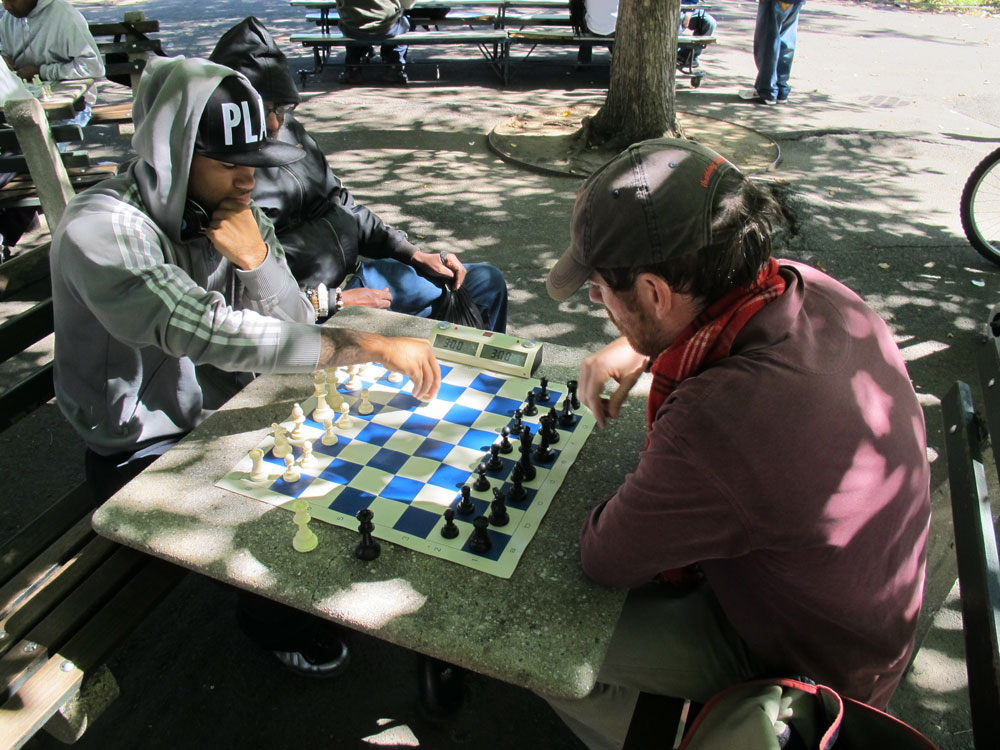
Young, left, and Bobby begin a three-minute game in Fulton Park on Sunday, September 23. The simplicity of a chessboard betrays the complexity of a well-played game. (New York City NewsService / Nicholas Wells)
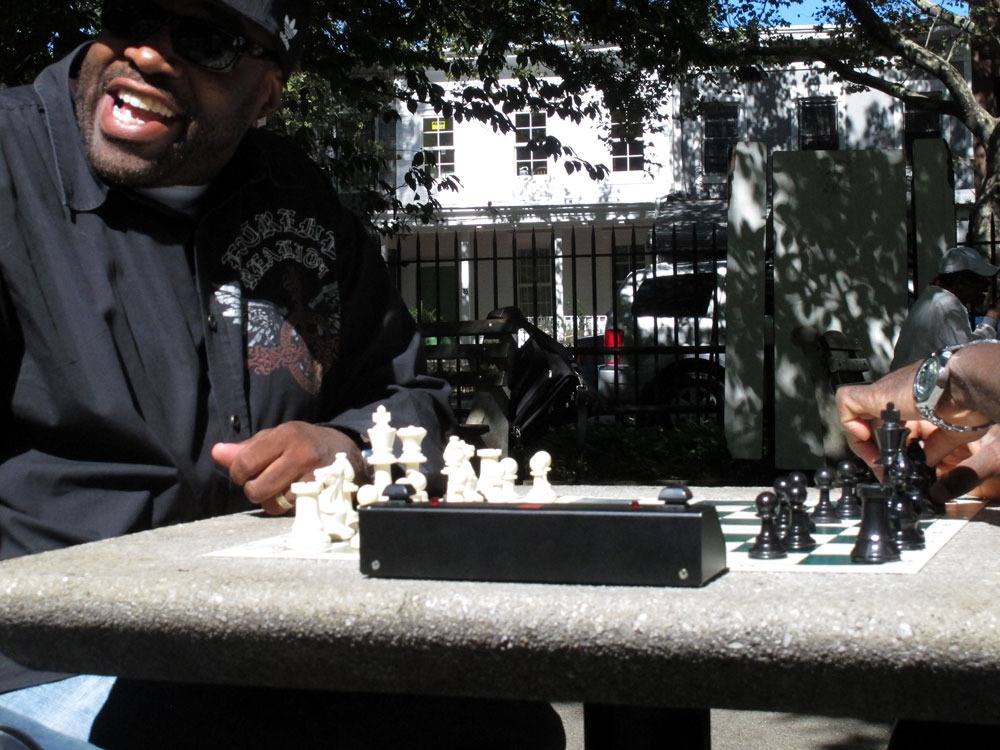
Spectators are respectful during games, offering at most a murmur when they see a move they disagree with. After the king goes down, they are more than happy to share their thoughts on the game. “You had his knight,” someone yells to Rob, “why didn’t you take it?” (New York City NewsService / Nicholas Wells)
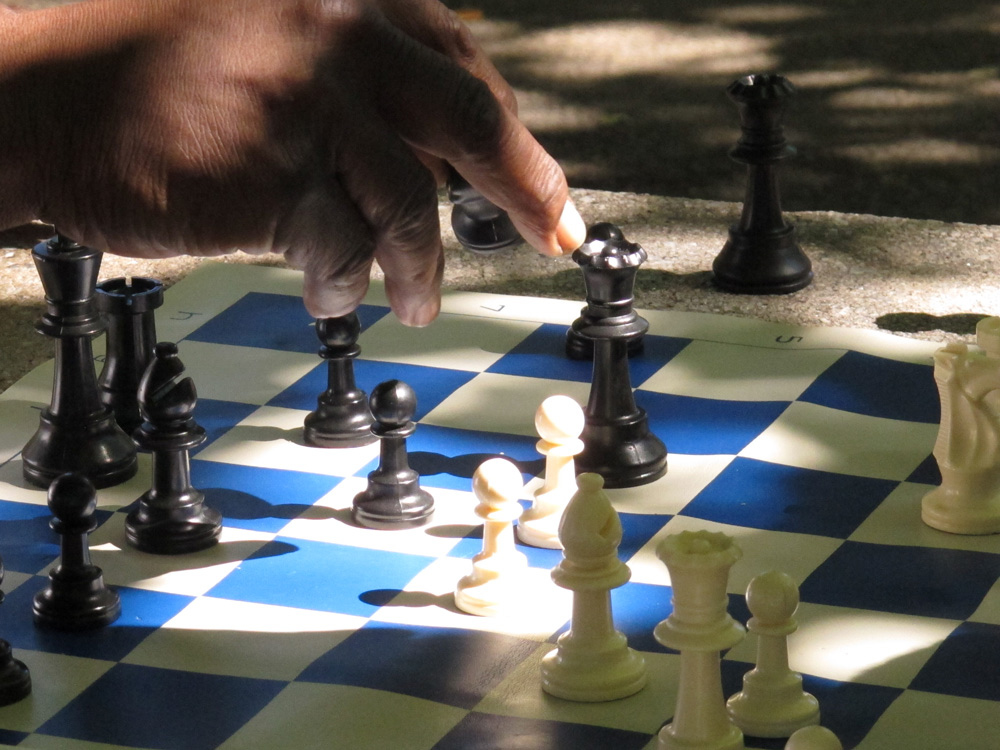
Alan exchanges his knight for a bishop. Great chess players can control the flow of a game casually, sitting comfortably with little expressed effort. (New York City NewsService / Nicholas Wells)

M.T.A. workers were the first to meet at Fulton Park to play chess, John says. “There was always someone getting off their shift, or about to start work.” Now it’s a regular spot for the neighborhood, with pick-up games and occasional tournaments. (New York City NewsService / Nicholas Wells)

In 1950, Claude Shannon, an American mathematician and electrical engineer, calculated the number of possible chess games at 10120. (New York City NewsService / Nicholas Wells)
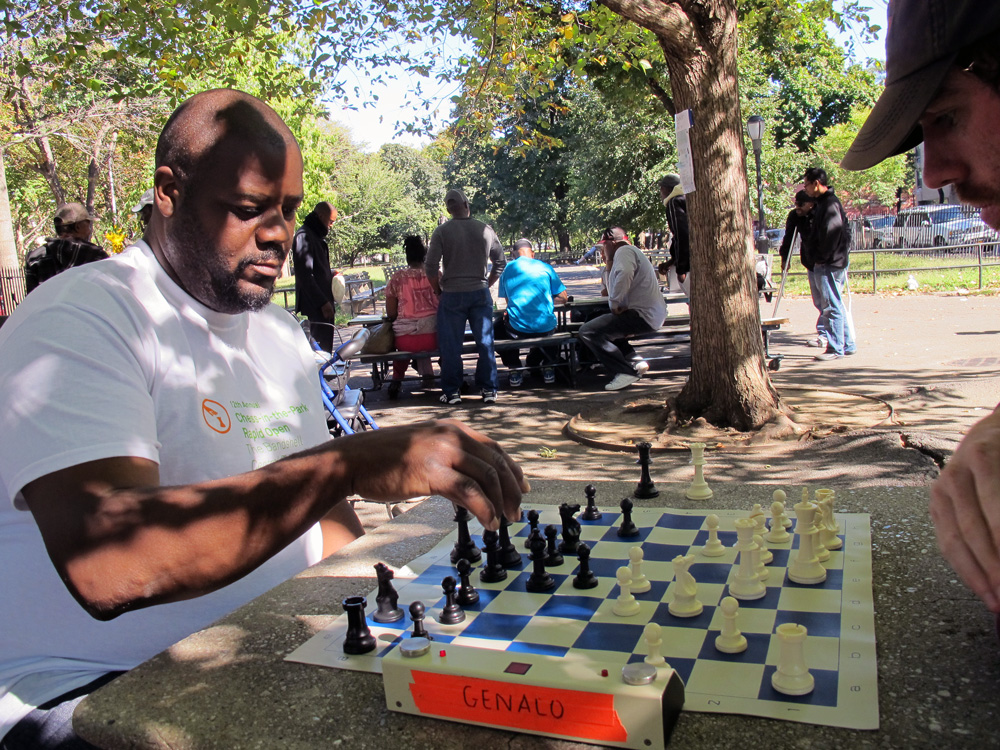
“I’ve been playing for 30 years,” Alan says, “But you can’t just play chess your entire life. I’m a singer songwriter, a physical therapist. One of the great things about the game is that it leads you to other things.” (New York City NewsService / Nicholas Wells)

Bobby, right, one of the more talented young players, finally meets his match in Gritty. They play a dozen three- and one-minute games, ending the day tied at six apiece. (New York City NewsService / Nicholas Wells)

The shorter the game, the more frantic the moves become until the board is a blur of hands shifting pieces and punching the clock. Players tend to make more mistakes in the rush. “Fast moves is as fast moves does,” Gritty says. (New York City NewsService / Nicholas Wells)

